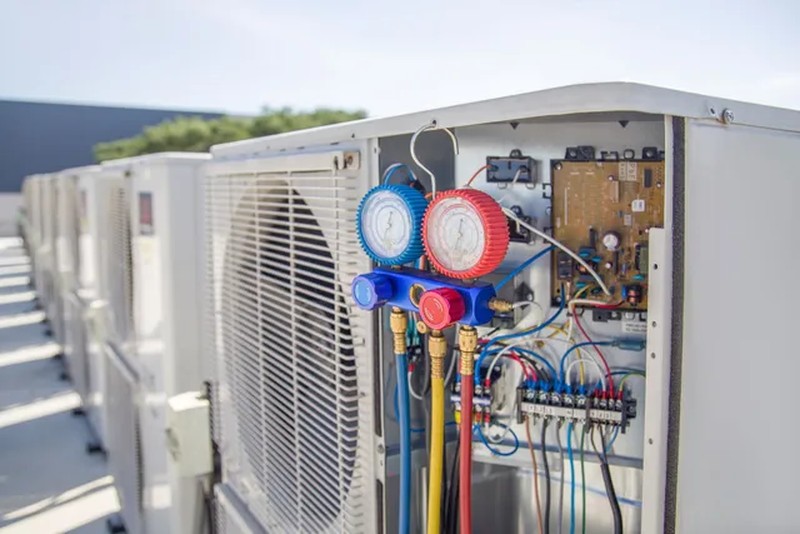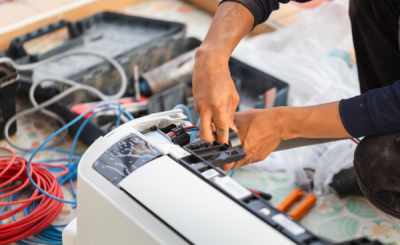Mastering the art of HVAC compressor replacement requires a blend of knowledge and practical skills. It starts with pinpointing the most suitable compressor for your system, considering both functionality and budget constraints. Costs can vary widely based on multiple factors, making wise financial planning essential.
Equally critical is choosing the right moment for an upgrade to ensure efficiency without unnecessary downtime. With these aspects in mind, let’s first explore how to select the ideal HVAC compressor that meets your specific needs.
Selecting the Right HVAC Compressor
When selecting the right HVAC compressor, note several key signs of trouble. Diminished cold air suggests your compressor may be failing to reach desired temperatures, a clear red flag. Inconsistent cooling and noisy operation often reveal underlying issues with compressors, such as bearing failures evidenced by grinding sounds or refrigerant leaks that could lead to complete breakdowns.
Pay attention also to any strong odors resembling coolant gas; this isn’t something you should ignore. If your AC system won’t even turn on, it raises immediate concerns about possible compressor malfunctions. A correct diagnosis paves the way for considering the cost of HVAC compressor replacement and anticipating necessary steps for installation, a pathway we’ll explore next in mastering HVAC compressor replacements for beginners.
Cost Evaluation for Replacement Projects
Evaluating the costs involved in HVAC compressor replacement is crucial for beginners to ensure smart financial decisions:
- Initial Inspection and Diagnosis:Every cost-conscious project starts with a thorough inspection. Arrange an appointment with a trusted technician to assess your current unit’s condition. They can pinpoint issues like clogged filters or leaky ducts, which may be less expensive fixes compared to full replacements.
- Age of Existing System:Consider the lifespan of your system. The age factor significantly impacts whether repair or replacement is more economical. If your unit has been running for nearly 15 years or more, investing in a new system might cut down on constant repair bills and improve efficiency by up to 25%.
- Efficiency Considerations and Upgrades:Understand potential long-term savings: Newer systems come packed with features that reduce energy use over time. Things like multi-stage cooling, zoned control options, and humidity management contribute not only comfort but also pocketbook-friendly operation if you opt for these upgrades during replacement.
Timing Your HVAC Upgrade Wisely
After evaluating the costs associated with replacement projects, it’s crucial to plan your HVAC upgrade meticulously. Spotting signs like inconsistent temperatures or frequent cycling indicates a struggling compressor, which could lead to increased energy bills. A professional technician should assess these symptoms promptly; delaying might result in more significant damage and higher expenses down the line.
Should your heat pump system be over a decade old, consider investing in an entire unit rather than just replacing the compressor, as newer models like Imperial AC Supply offer better reliability and warranties.
They also leverage eco-friendly refrigerants such as R-32 for minimized environmental impact while providing enhanced year-round comfort through both heating and cooling capabilities.
Ultimately, staying well-informed will guide you toward making decisions that promote operational efficiency and cost-effective home temperature management.
Mastering HVAC compressor replacement starts with solid knowledge and the right tools. Take it step by step; identify the issue, choose a quality compressor from Imperial AC Supply, ensure you have the necessary certifications for handling refrigerants, and follow all safety protocols. Practice makes perfect. Don’t get discouraged if success isn’t immediate. Patience pays off as you grow more comfortable with this essential skill in maintaining efficient heating and cooling systems.








